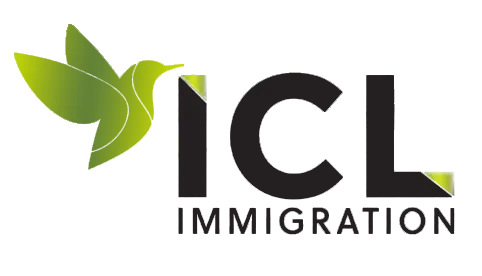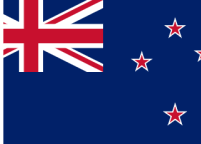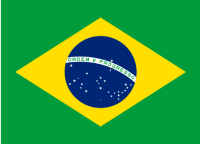Understanding Immigration New Zealand’s Health Requirements
1. Key Statistics & Why Health Standards Matter for Visa Applicants
When applying for a New Zealand visa, meeting the Acceptable Standard of Health (ASH) is a crucial requirement. Immigration New Zealand (INZ) assesses each applicant’s health to ensure that they do not pose a risk to public health or place excessive demand on the country’s healthcare system.
Key Statistics on Health-Related Visa Decisions (Last 5 Years)
| Year | Applications Declined Due to Health Reasons |
| 2019 | 2,884 |
| 2020 | 828 |
| 2021 | 328 |
| 2022 | 1,072 |
| 2023 | 1,788 |
| 2024 | 1,395 |
These numbers highlight that thousands of visa applications are declined every year due to medical ineligibility. It is essential for visa aspirants to understand the minimum health standards, what conditions may lead to rejection, and whether they qualify for a medical waiver.
2. What is the Acceptable Standard of Health (ASH)?
New Zealand’s Acceptable Standard of Health criteria ensure that all visa applicants:
- Do not pose a public health risk.
- Do not create significant demand for New Zealand’s health services.
- Are fit for the purpose of their visa (e.g., work, study, residency).
Applicants must meet these criteria to have their visa approved, whether they are applying for a temporary visa (e.g., work, visitor, study visa) or a residence visa.
3. Who Needs a Medical Examination or X-ray?
3.1 General Requirements
A medical examination or chest X-ray is generally required if:
- You are applying for a residence visa.
- You will be staying in New Zealand for more than 12 months.
- You are applying for an Accredited Employer Work Visa or a visitor visa from a high-risk country.
3.2 Exceptions
Some applicants do not need an X-ray or medical examination:
- Children under 11 years old.
- Pregnant women (unless an additional report is required).
- Applicants from countries with low incidence of tuberculosis (TB).
4. Medical Examination Process
4.1 How to Get a Medical Examination
- You must visit an INZ-approved panel physician for your medical tests.
- Medical results are submitted electronically through eMedical, the official INZ system.
- If your country does not have panel physicians, you can visit a registered medical practitioner to complete the required health forms.
4.2 Required Documents for Your Medical Appointment
- Passport-sized photos (3 recent photos).
- Completed medical certificate forms:
- General Medical Certificate (INZ 1007).
- Chest X-ray Certificate (INZ 1096).
- Limited Medical Certificate (INZ 1201) – if applicable.
4.3 Medical Certificate Validity
- Your medical and X-ray certificates must be less than 3 months old when you submit your visa application.
5. Health Conditions That May Affect Your Visa Application
Certain chronic medical conditions or disabilities may lead to a visa rejection. INZ assesses these based on their impact on public health and healthcare costs.
5.1 High-Cost Medical Conditions
Your visa may be declined if you require:
- Long-term hospitalization or medical treatment.
- High-cost pharmaceuticals or disability services.
- Residential care or full-time medical assistance.
5.2 Medical Conditions That May Lead to a Visa Decline
Neurological & Cognitive Disorders
- Alzheimer’s disease or dementia.
- Multiple sclerosis, Huntington’s disease, motor neurone disease.
- Cerebral palsy or brain injury requiring full-time support.
Chronic Diseases & Organ Failures
- Chronic kidney, liver, or heart disease.
- Severe respiratory illnesses (e.g., cystic fibrosis).
- Musculoskeletal conditions requiring major surgery.
Infectious Diseases
- Active tuberculosis (TB).
- Hepatitis B or C (if antiviral treatment is required).
- History of multidrug-resistant TB.
Obesity & BMI
- Obesity alone does not disqualify applicants, but INZ considers related risks such as:
- Diabetes.
- High blood pressure.
- Heart disease.
INZ may defer an application for 3 months to allow an applicant to improve their BMI or health condition.
6. Medical Waivers for Visa Applicants
6.1 When Can a Medical Waiver Be Granted?
A medical waiver may be approved for residence visa applicants if:
- The applicant has strong family ties to New Zealand.
- The applicant has skills or experience that benefit New Zealand.
- The visa category objectives allow for waivers (e.g., partnership residence).
6.2 When Will a Medical Waiver Not Be Granted?
Applicants will not qualify for a waiver if they:
- Require dialysis treatment or are expected to need it within 5 years.
- Have severe haemophilia.
- Require full-time residential care due to disability.
- Have active or untreated tuberculosis (TB).
7. Visa Categories & Health Requirements
7.1 Residence Visas
- More stringent health criteria than temporary visas.
- Medical waivers may apply, depending on case specifics.
7.2 Temporary Visas (Work, Study, Visitor)
- Your visa may be declined if INZ believes you will require the following:
- Hospitalization or disability services.
- Expensive medical treatment.
- Child Visas: Special health criteria apply to dependent children applying for work, student, or military visas.
8. What to Do If You Have a Medical Condition
If you suspect your health condition may impact your visa application:
- Consult an INZ Licensed Immigration Adviser before applying.
- Gather medical reports and additional supporting documents.
- Check your eligibility for a medical waiver.
9. Public Healthcare & Private Health Insurance in New Zealand
9.1 Access to Public Healthcare
- New Zealand has a universal healthcare system.
- Residents, citizens, and long-term visa holders (2+ years) automatically qualify.
- There is no opt-out option.
9.2 Private Health Insurance & INZ Decisions
- Health insurance does NOT impact visa approval decisions.
- Immigration New Zealand only considers public healthcare costs when assessing ASH criteria.
10. Conclusion
- Understanding and meeting the Acceptable Standard of Health is essential for visa approval.
- If you have a pre-existing medical condition, consult a Licensed Immigration Adviser for expert guidance.
- Ensure all medical documents are submitted correctly to avoid unnecessary delays.
For professional visa assistance and medical waiver applications, contact ICL Immigration today.
Reference














